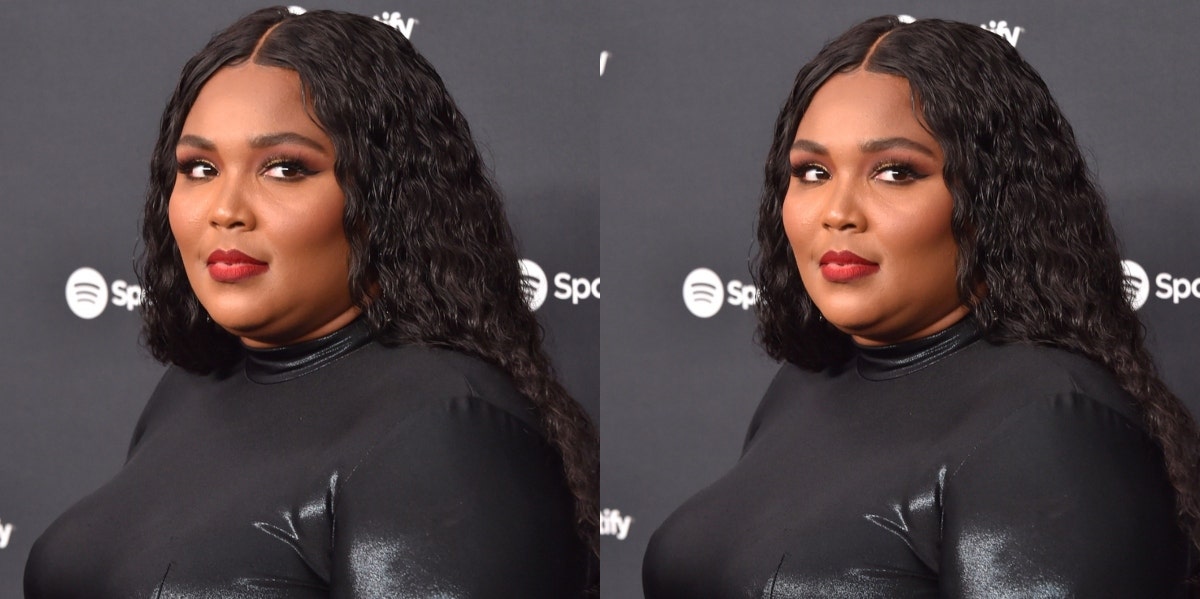Lizzo Posts Unedited, Unfiltered Nude Photo On Instagram — Should We All Do The Same?
All bodies are beautiful.
 DFree / Shutterstock
DFree / Shutterstock Lizzo is going au natural and baring her body in all its glory as part of her new campaign to promote body confidence.
The “Truth Hurts” singer shared an unedited nude photo of herself as she told her 10.3 million followers that she was choosing not to rely on the filters and photo-editing she normally uses to “fix [her] belly and smooth [her] skin.”
Why did Lizzo decide to post an unedited and unfiltered nude photo of herself on Instagram?
Teaming up with Dove for their Self Esteem Project, Lizzo hopes to “reverse the negative effects of social media and changing the conversation about beauty standards.”
Her unedited images are a refreshing break from what we usually see on social media, but it shouldn’t be a shock to see a person's real body online.
How we look in our bodies in real life is often completely different from how we present ourselves on social media, but is it time to ditch the filters once and for all and start sharing ourselves as we really look?
Lizzo says loving her body was a matter of “literal survival.”
Lizzo pointed out that loving your body isn’t a choice, it’s a necessity if you want to get the most out of life.
You only get one body and comparing it to others or letting outside opinions distort your self-worth certainly won’t make things any easier.
"I'm going to continue to live in this body and survive in this body and be happy and actually enjoy life, I need to find a way to like myself. I was body negative for a long time," Lizzo revealed.
Her unedited images and frankness about her body image are a rarity nowadays.
We live our lives through our screens and with a whole world of filters and editing apps at our fingertips, it is becoming harder than ever to love what you see in the mirror when those false realities are switched off.
Lizzo wants us to normalize loving all bodies.
The use of filters have become so normalized that posting anything with #nofilter has come to be seen as some kind of daring statement of body positivity.
It shouldn’t be revolutionary to declare that you’re presenting yourself online the same way you appear in real life.
Lizzo also conveyed that she no longer wants people to see her body confidence as a push-back against the beauty standards we’ve become accustomed to.
The singer is regularly heralded as a champion of the body positivity movement, but even this praise is another way to make bigger women feel less normal than those with other body types and shapes.
Larger women shouldn’t be made to feel like confidence and self-empowerment are not for them.
Lizzo is advocating for a kind of body normativity that doesn’t draw attention to differences in how we look.
"It's not a political statement. It's just my body. When you see it, keep it pushing. Keep that same energy that you keep with all the other bodies you see. That's what body normative really means to me," the singer said. "I'm here, don't say anything. It's not a statement. It's my body."
Body normativity won’t happen until we see normal bodies on social media.
In order to truly normalize all bodies, we must actually show our normal bodies. Even people with “ideal” body types use filters and editing on social media to make themselves look “better” (read: unrealistic).
Filters and photo editing have distorted what we consider a “normal” body to look like. Even the bodies we idealize online are fabrications.
In early 2021, the UK banned the use of beautifying filters in advertising on social media, as they display a false reality.
Though intended to maintain honesty in advertising, it also serves as a means of preserving realistic body expectations.
If a similar, or even more restrictive protocol on filters was enacted internationally, the pressure to live up to unrealistic beauty standards could, perhaps, be minimized.
Celebrities like Lizzo set a trend for how we view ourselves and others on social media. But famous faces also become victims of the standards they create.
Khloe Kardashian found herself in hot water recently after it was discovered that she was trying to have an unedited image of herself scrubbed from the internet.
Her actions betrayed her insecurity about being viewed without the benefits of carefully crafted filters or flattering angles. However, given the power and influence she has on social media, her choice to use filters plays into the insecurities millions have about their own self-image.
If the people using these filters so prolifically feel too ashamed to post their images without them, it begs the question of who are these filters actually for?
If none of us had access to them, would anyone lose out?
Lizzo has condemned the use of photo filters and the vicious cycle of body negativity they create, saying, “It scares me to think that now there is a tool that actually cashes in on that insecurity and it makes it bigger. It feeds the monster."
Alice Kelly is a writer living in Brooklyn, New York. Catch her covering all things social justice, news, and entertainment. Keep up with her on Twitter for more.
